Mohammad Amin Wahidi
Filmmaker/Blogger
Yet it is 2012 and more than a year and half is left for the pull-out
of the foreign troops from Afghanistan
but the fear of return of the Taliban is already overcasting everywhere in the
country while the people speculate the aftermaths of 2014 differently.
In addition to military aspect of day by day increasing of guerrilla
attacks of the Taliban to the major cities, their cultural influences on the
governmental offices are as dangerous as their military attacks.
One of the most recent cases is the misbehavior of the Afghan
government officials with the artists from ethnic Hazara in Kabul.
In midday June 21st 2012 before the opening
of the exhibition Documenta in Kabul, the Minister of Information and Culture
and some of his men rushed to the exhibition venue where they used violence
against the artists and applied restrictions against works of three artists,
all from the minor ethnic Hazara; Mohsen Taasha, Amin Taasha and Azizullah
Hazara. The Minister and his men banned four artworks in total and confiscated
them all.
They took three artists away and kept them in custody for an hour and
then, an order was released by the Ministry of Information and Culture of
Afghanistan that prohibits the participation of these artists and their works
in any other exhibitions in Afghanistan.
Mohsen Taasha is a young
artist from Afghanistan.
He is the winner of Afghanistan Contemporary Art Prize 2010 and a participant
of DOCUMENTA 13 this year in Kassel Germany. This
year at the Documenta, he was considered the youngest artist ever participated
at the Documenta Contemporary Art Exhibition.
Before Documenta, Mohsen
Taasha’s paintings and installations were being exhibited in Paris
and Prague as
well.
The painting brought him misfortune is called “A Man Reading Quran,
Without Knowing the Meaning.”
The confiscated painting was done after Mohsen Taasha participated in a workshop called “Seeing Studies”, supported by Documenta in Kabul. The aim of the workshop was to extend the ways of how artists view things around him and how interpret things including existed artworks by other artists.
The order of the Minister of Information and Culture of Afghanistan
says that Mohsen Taasha and his two fellow artists Azizullah Hazara and Amin
Taasha are not allowed to participate in any exhibitions thereafter in Afghanistan.
After the incident, many artists in Kabul objected on Minister’s censorship and
discrimination. The website of Hazara People International Network wrote an
objection letter condemning censorship and ethnic discrimination applied
against Hazara artists.
Based on the historical evidences, the Hazaras, who have always been the
main victims of ethnic cleansing in Afghanistan
and Pakistan, were
prosecuted by the Taliban very fiercely during their rule on Afghanistan.
They still have in mind how the Taliban mass-massacred them in Bamyan, Mazar e
Sharif and Yakawlang.
With the new era after the fall of Taliban’s Emirate in Kabul, a new horizon
begin to appear for the vulnerable groups such as the women, ethnic and
religious minorities and the cultural activists such as the artists, writers,
filmmakers and enlightening intellectuals in Afghanistan who were all previously
tortured by the Taliban.
Among all, the Hazaras, with all challenges and discriminations against
them, taking advantage of the relative freedom in the new era, began to move
towards democracy and development. They have been very active in women education,
mass literacy program among the people, sport, art and different cultural activities
in the passed decade for which they gained honors and credits for Afghanistan.
After these years of democracy experiences, now the fear of return of
the Taliban can easily destroy their imaginary castle of prosperity they had
built for them in these ten years.
And now, the lately efforts made in rush to bring back the Taliban on
power, makes thing nonsense for the groups who have suffered during the
Taliban. They believe if the Taliban are to come back on power, this time by
the direct support of the west, then there were no need for this long-ten-years
of blind war against them.
Seeing the clearance of path by the government officials for the
Talibanism ideology already, a grand majority of the urban population, could
have the most fearful nightmare that is the return of the Taliban on power
again after these years of relatively open period for the mass-media and
artistic expressions.
The lately unpleasant signs of neo-extremism in Afghanistan reveal the
tendency of the government towards fundamentalism could it be for the purpose
of contenting the terrorist group of Taliban for joining the government or it
is the action of the pro-Taliban elements who are already placed in the
government body. Whatsoever it is, these suspicious signs are not considered as
good signs for a peaceful 2014.
As a matter of fact, so far the most important achievements during
these ten years of post-Taliban era (2002-2012) for which the government officials
always boast, are the relatively freedom to the women as the most vulnerable
population of the society, the relatively openness of ground for the media and
press, openness for artistic and cultural activities and the return of the
artists in the art galleries, otherwise the long-going costly war would seem to
be aimless without guaranteeing a real democracy for the majority of people of
Afghanistan.
The illegal procedure on going by the Afghan Government, through which the terrorist Taliban are not only being forgiven but also being rewarded and compensated with money, is a kind of encouragement for the terrorism, illegality and organized criminality in the country.
While on the other hand, applying restrictions on artists, writers and
journalists by the name of religion is a deadly and very dangerous way of quieting
the real voices of the society.
Facebook Page: Mohsen (Wahidi) Taasha
Email: mohsentaasha@gmail.com
For more information read the link below:
Censorship and Racial Discrimination Continues in Afghansitan







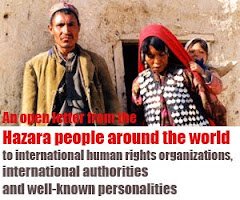


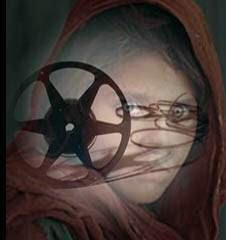
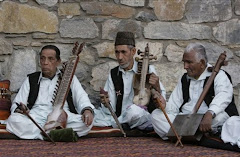


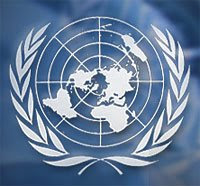
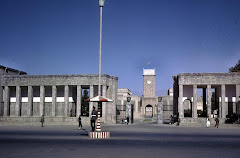



1 comment:
Art work is improving in Afghanistan . We need large collection of art works gallery to see
Post a Comment